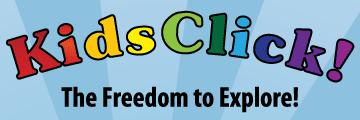
4.5 Use ICT safely, responsibly and ethically
Demonstrate an understanding of the relevant issues and the strategies available to support the safe, responsible and ethical use of ICT in learning and teaching.
As a result of growing up in a rapidly evolving digital and technologically interconnected world, the children of our modern world have acquired a unique technological identity where they are viewed as “digital natives” or the “Net Gen” (Prensky, 2006). As schools become increasingly networked and individual classrooms attain greater access to the internet, students become more immersed in a wider variety of information and communication technologies (ICT) (Harriman, 2007). Oblinger and Oblinger (2006) assert that 73% of students are more likely to use the Internet for research than the library as they prefer acquiring information through tools available on the world wide web such as Google or Wikipedia. While the internet offers an expansive ocean of information, if not used safely it can draw unsuspecting students deeply into its web and cause them harm such being inadvertently exposed to undesirable violent or sexual content or predatory adults (Crammer, Selwyn, & Potter, 2009). Under the Department of Education (2014), teachers should operate with appropriate filtering systems to block sites deemed inappropriate to reduce the risk of student exposure to inappropriate content.
During my final practicum placement, students were required to plan and present a research report on an aspect of Ancient Greek life. The use of online technologies was a pivotal part of the project as students relied on the internet as their primary source of information. Unfortunately, their search requests tended to produce inaccurate or irrelevant information, while some uncovered inappropriate material relating to ancient Greek life, such as images relating to nudity and violence. To overcome this issue, I introduced the students to several alternative search engines which have been designed specifically for children (see below, click image to view search engine website). Furthermore, students were asked to compose four research questions to guide their future information collection process.
These modifications align specifically to the following ICT learning continuum outcomes:
Since online materials are open and accessible to all, students tend to forget that they are protected by copyright. In some cases, credit for online content is not given because it is often unclear who holds the copyright. (Shin, 2015). To ensure students collected information in an ethical and responsible manner, specific guidelines were provided that outlined how to reference internet sources correctly. A key requirement of their summative assessment submission was to supply a detailed bibliography of their internet sources. This addressed the following ICT learning continuum outcome:
References
Crammer, S., Selwyn, S., & Potter, J. (2009). Exploring primary pupils’ experiences and understandings of ‘e-safety’. Education and Information Technologies, 14(2), 127-142. Retrieved from ProQuest.
Department of Education. (2014). Students Online Guidelines. Retrieved from http://www.det.wa.edu.au/policies/detcms/policy-planning-and-accountability/policies-framework/guidelines/student-online-guidelines.en?cat-id=3457966
Harriman, S. (2007). Online projects: powerful learning through quality pedagogy. Scan, 26(4), 26-30. Retrieved from Informit Humanities & Social Science Collection.
Martin, Z. (2012). Digital natives, searching behaviour and the library. New Library World, 113(3/4), 174-201. Retrieved from ProQuest.
Oblinger, D., & Oblinger, J. L. (2006). It is age or IT: first steps toward understanding the Net Generation. CSLA Journal, 29(2), 8-16. Retrieved from http://www.educause.edu/research-and-publications/books/educating-net-generation/it-age-or-it-first-steps-toward-understanding-net-generation
Prensky, M. (2006). Listen to the natives. Educational Leadership, 63(4), 8-13. Retrieved from EBSCOhost Education Source.
Shin, S.-K. (2015). Teaching critical, ethical and safe use of ICT in pre-service teacher education. Language Learning & Technology, 19(1), 181-197. Retrieved from Factiva.



